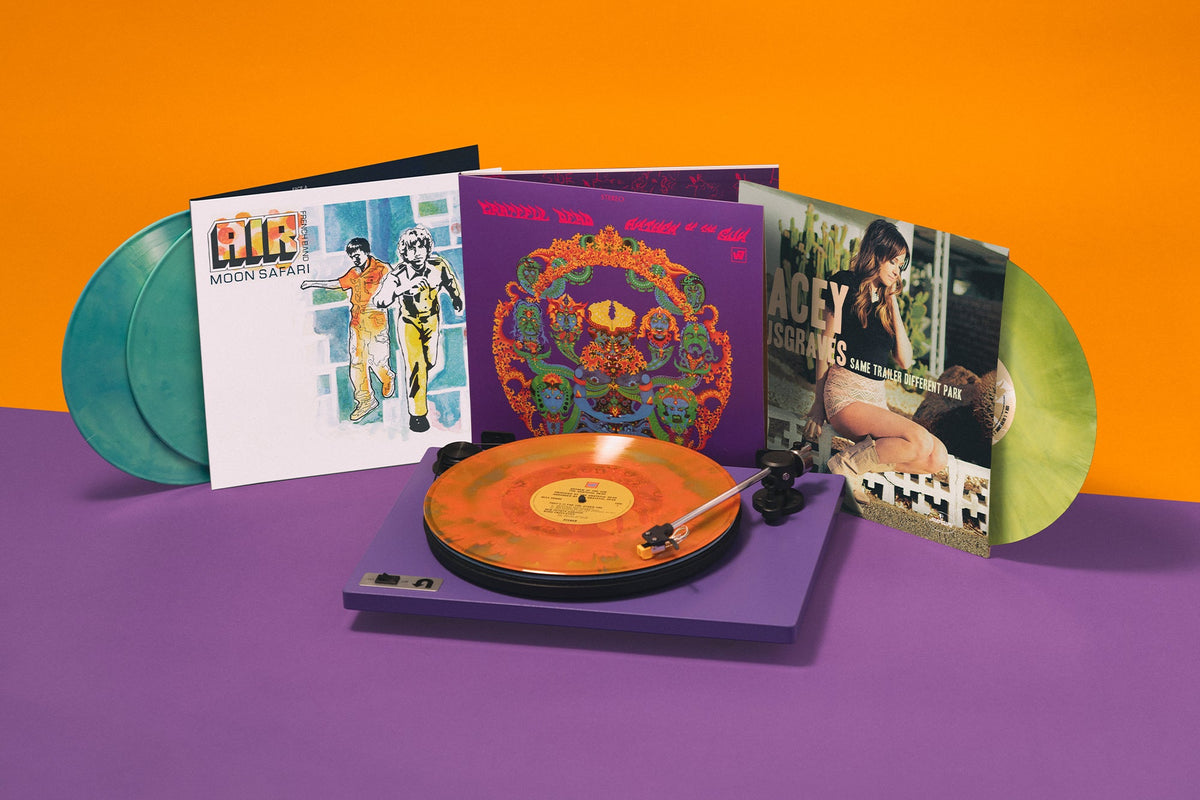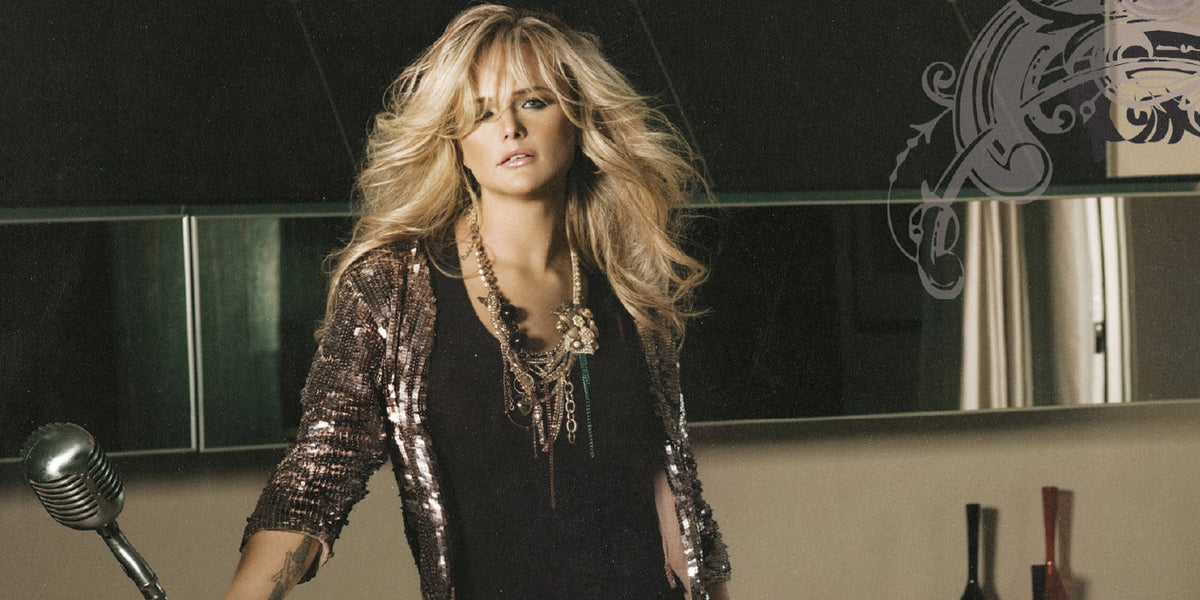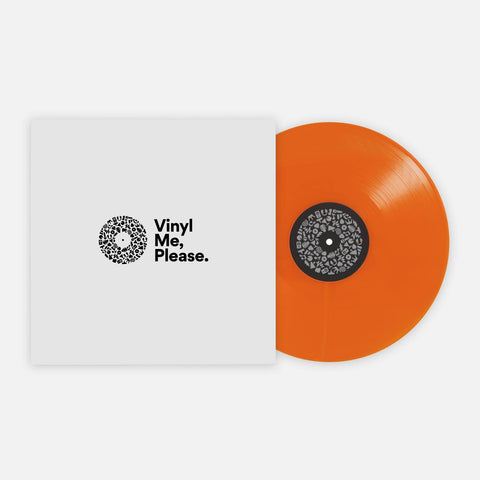Kacey Musgraves Hit the Bullseye with ‘Same Trailer Different Park’
On the undeniable country star’s 2013 debut full-length
The characters that inhabit the muggy and restless world of Kacey Musgraves’ 2013 debut full-length Same Trailer Different Park rocket country’s old three-chords-and-the-truth adage to another stratosphere. Simply put, Musgraves would seemingly rather burn her guitar than pick it up just to sugarcoat things. Take, for example, the record’s first single, “Merry Go ’Round,” a melancholy track punctuated with the sparse glow of banjo plucks that gleam intermittently throughout the song the way warm light from dull street lamps passes through car windows. It explores what it means to get stuck in your downtrodden surroundings and settle “like dust” where you are. In it, the characters get boxed in by tradition and feel so secure in their blanket of familiarity that they never leave it, turning to an array of vices for stimulation when inevitable boredom sets in. The chorus is a blunt-force early example of the kind of addictive tongue-in-cheek paronomasia that Musgraves would come to be beloved for: “Mama’s hooked on Mary Kay / Brother’s hooked on Mary Jane / And Daddy's hooked on Mary two doors down / Mary, Mary quite contrary / We get bored, so we get married.”
“God, I’m just so thankful that it was the first thing that I got to kind of say to the music world. A lot of it was inspired by the surroundings I had growing up, as in just being from a tiny little Bible Belt town in a conservative area,” she said in an audio interview with Spotify around Same Trailer’s release. “No matter what size town you’re from — big or small, or if you’re wealthy or poor — we’re all kind of driven by the same emotions, distractions. And, too, I feel like when people are scared to kind of branch out of their comfort zones, they tend to settle a little bit. And that’s never good for anybody.”
Musgraves grew up in Golden, an unincorporated community of a few hundred people just under an hour-and-a-half drive east from Dallas. The town contains a grocery store, a cemetery, a roller rink, four churches and, prior to Kacey, was best known to the world for churning out particularly tasty root vegetables after Oprah Winfrey featured a Golden sweet potato on her “Best of Everything” show in 2004. A few months before the record came out, Texas Monthly proudly covered the 24-year-old rising star’s attendance at Golden’s 30th annual Sweet Potato Festival (“two days of livestock shows, children’s pageants, and mutton bustin’ that lead up to the main event, a sweet potato auction”) where she was set to perform on a stage made up of a flatbed trailer, some hay bales and Christmas lights. Though she came in from Nashville to play this “homecoming” show (because her mom booked it for her), she’d grown up playing gigs just like it in and around Golden.
Musgraves was raised by her mom and dad, Craig and Karen, who earned a living running a small mom-and-pop print shop in a nearby town called Mineola. The Musgraves’ tight-knit household embraced creative expression; her mother was a painter and visual artist and her younger sister Kelly pursued sewing and photography (Kelly would go on to photograph and art direct much of Kacey’s iconic album art, including the cover for Same Trailer). Her grandma lived right next door, and Kacey grew up perusing her grandfather’s robust vinyl record collection. It put her on to decades of country and rock music she otherwise may not have happened across as a kid in the late-’90s and early aughts, while she also fanatically consumed Spice Girls, NSYNC and Britney Spears. Karen taught Kacey to harmonize as a young child, and at eight years old, LeAnn Rimes’ hit “Blue” inspired her to learn to yodel. Her family drove her around Texas to opries and festivals, where she performed Western swing music to anyone that’d listen. As a pre-teen, she learned the guitar from a local musician named John DeFoore, who’d previously taught folk singer-songwriter Michelle Shocked, and other future country stars. DeFoore taught Musgraves the banjo, guitar and mandolin, and coached his students to write their own songs, a skill she was already familiar with; she’d written her first song, “Notice Me,” around age nine for her elementary school graduation.
Her family continued to support her aspirations throughout her teenage years, handling much of her booking and promotion. After graduating from high school in 2006, she moved to Austin in search of bigger stages, gigging at small clubs like the now-defunct Momo’s and Threadgill’s and self-releasing three albums. During this period, she worked a number of day jobs to get by, including a gig performing and singing at children’s birthday parties as Cinderella, Ariel or Hannah Montana. Eventually, she packed up and moved from Austin to Nashville after some encouragement from a fellow singer-songwriter, mentor and friend, Radney Foster.
In Nashville, the foundation of Musgraves’ long-held reputation as an assassin songwriter began to take shape. At 21 years old, she signed a publishing deal as a staff writer for Warner Chappell Music, clocking in each day to write songs for other artists, all the while quietly learning to understand her own voice and sussing out what songs meshed best with her style. “When I realized that I didn’t have an acrobatic, powerhouse voice, I think it made my songwriting better,” she explained to FADER in 2015. “It made me focus on the lyrics more. It’s not about what I can do with my voice; it’s whatever the song needs.”
Among the songs she wrote during this period of time was none other than Miranda Lambert’s 2011 hit “Mama’s Broken Heart.” Written alongside Shane McAnally and Brandy Clark — who appear next to Musgraves’ name all over the writing credits for Same Trailer — Lambert convinced Musgraves to let her sing the song at the rehearsal dinner for her wedding to Blake Shelton. Musgraves agreed, on the condition she could sing the harmonies. The track is a swinging barn-burner that challenges the traditional and generational expectations of “acceptable behavior,” particularly when it comes to how women are expected to handle heartbreak and wrong-doings: “Can’t get revenge and keep a spotless reputation / Sometimes revenge’s just a choice you gotta make / My mama came from a softer generation / Where you get a grip and bite your lip just to save a little face.”
2012 was a big year for Kacey Musgraves: she scored a spot opening for Lady A on the European leg of their tour, signed with Mercury Nashville and finally began seriously preparing for her major-label solo debut. Cementing her definitive modus operandi as an artist with immense creative control of her work, she co-wrote every song on Same Trailer Different Park and co-produced the record alongside McAnally and Luke Laird. Its sound intentionally blends traditional country elements like pedal steel, harmonica and banjo with the polished pop sound of ’90s and early-2000s commercial country, a combination that’s married successfully by the songs’ sparse and carefully edited arrangements and Kacey’s no-nonsense, tell-it-like-it-is writing style. Her creative control didn’t end when she and her team left the studio; Musgraves had a strong sense of how she wanted to be rolled out to the world, starting with the release of “Merry Go ’Round” in September 2012.
“I had fought like hell for this song to be my first single. I was explicitly told that it was ‘too depressing’ and ‘slow’ for a new female artist to ever come out of the gate with. I was prepared to go down in flames,” Musgraves shared on social media on the song’s fifth anniversary. According to a New York Times article published days before Same Trailer came out in March of 2013, the label was concerned “Merry Go ’Round” would be perceived as too critical of certain aspects of small-town life. Mike Dungan, chairman and chief executive of Universal Music Group Nashville, remembered her arguing: “All I know is that when I sing it, wherever it is, people connect with it, they feel something, and I feel something.”
And she was right — audiences connected to the song instantly. Despite her label’s initial hesitation, her debut single climbed the charts, peaking at No. 14 on the Billboard Hot Country charts, No. 10 on the Country Airplay charts, No. 63 on the Hot 100 and eventually going on to win the Grammy for Best Country Song. So, what exactly made Kacey so capable of winning over the same kind of small-town, Southern or middle-American audiences that she’s holding such a critical lens to in a track like “Merry Go ’Round”? The label’s concerns that this iconoclastic approach would alienate her audience right away may have been, for other artists, valid. But a core pillar of Kacey’s songwriting on Same Trailer is wittily utilizing sonic tradition to challenge cultural traditions in a way that pulls people in, instead of casting them away. As a writer, she respects her listeners’ intelligence and critical minds enough to tell them the truth, serving it with high-octane empathy. Musgraves’ first collection of tracks is void of judgment or oversimplification of the characters and perspectives she investigates, taking a more observational approach with a hint of subtle humor and sarcasm thrown into the mix.
“My favorite kind of songs are clever without sounding like they’re supposed to be clever,” Musgraves told Texas Monthly at the Sweet Potato Festival, citing John Prine and Ray Wylie Hubbard as two of her songwriting heroes. “Especially if they sound traditional but push the envelope a little in the message they’re conveying.” Her second single, the uptempo rock-leaning “Blowin’ Smoke” is a shining example of this ethos. It’s a worker’s anthem that evokes Sheryl Crow’s angstier tracks, centering an apathetic waitress who’s talking shit on her smoke break and spinning the same yarn that she’ll quit one day.
“To me, it’s a total contrast from what ‘Merry Go 'Round’ is, but I think it’s coming from the same character, the same observant character,” she told Spotify. “It’s another song kind of about being stuck somewhere, which I feel like is interesting to me. It’s funny because most people probably don’t realize that the song has two chords. It’s a two-chord song. It never changes. I love the dynamic that it just kind of gets in its groove and it stays there.”
Despite these common themes in the record’s singles, the characters of Same Trailer Different Park are hardly victims of their own circumstances. As a whole, the collection’s outspoken, opinionated voices are largely in service of Musgraves’ sensible and nuanced variety of hope. (Think less Hallmark card hopefulness and more older sister pragmatically breaking down some lessons she learned the hard way for you, so you don’t have to find out the way she did.) Album opener “Silver Lining” is a buoyant tone-setter that promises good things to those willing to endure hard times, sung wistfully, as if Kacey were trying to assure herself alongside her listener: “If you want to fill your bottle up with lightning, you’re gonna have to stand in the rain.” The sweet-as-pie diddy “My House” is a trailer anthem that acts as a thematic counterbalance to tracks like “Merry Go ’Round,” celebrating the freedom of a transient lifestyle without too many worldly possessions to tie you down. “Dandelion,” inspired by Kacey’s own makeup box decorated with an image of a dandelion, takes the unique perspective of a down-on-their-luck narrator blaming the dandelion they made a wish on for their misfortune.
While deceptively simple and cohesive, the record’s varied influences create a sonic scavenger hunt. Emo-tinged ballad “Back On The Map,” for instance, could very well be picked up right off the cutting room floor of Paramore’s Riot!, while the lush bittersweet wind-swept Western strums of “I Miss You” are pure Marty-Robbins-meets-Beach-Boys. Elsewhere, Kacey’s singular focus is delivering clear, unapologetic messages said with her chest. Love is dumb and wrecks us all in the end. (“Step Off,” “Keep It To Yourself” and “Stupid,” respectively). If you haven’t picked up on this by now, Musgraves is — above all else — not the type to mince words. Which is why, before Same Trailer Different Park even dropped, she famously made waves at 2013’s annual Country Radio Seminar when she chose to perform “Follow Your Arrow.” The song, a joyful romp through waves of tambourine and pedal steel, advocates for doing whatever the hell you want, even if it just so happens not to follow common convictions. “Make lots of noise, kiss lots of boys, kiss lots of girls, if that’s somethin’ you’re into,” Kacey advises. “When the straight and narrow gets a little too straight, roll up a joint, or don’t.” Written in tandem with two of pop country’s most prolific songwriters, Brandy Clark and Shane McAnally, both of whom are members of the LGBTQ+ community, its unflinching mention of marijuana and gay kissing at a convention for one of the country music industry’s most conservative institutions caused a bit of a stir. Billboard covered her performance on February 27, 2013, running a story headlined “Is Kacey Musgraves’ ‘Follow Your Arrow’ Too Racey for Country Radio? Programmers Weigh In.” In it, radio programmers were quoted saying “I wish I could play that song on my station,” and “this is not only pushing the envelope, it’s where the envelope gets mailed to.”
“A label’s typical plan would be to put something out that’s safer and get fans, and then push buttons,” Musgraves told the New York Times when asked about her choice to perform “Follow Your Arrow” at CRS. “But my idea is to push buttons first, scare off the people who are gonna be scared off, and then the right people will like you for who you really are, and stay with you.”
Right, again. Just another instance of Kacey Musgraves standing her ground — and predicting the future in the process. Not only has “Follow Your Arrow” remained an anthem to many and one of her most beloved tracks to this day, but more of those “right people” liked Kacey for who she really is than she could’ve ever imagined. She performed “Follow Your Arrow” at the 56th Grammy Awards, and was nominated for four different categories, taking home the Grammys for Best Country Album and Best Country Song — and Musgraves was just getting started. Her subsequent albums, 2015’s Pageant Material, 2018’s Golden Hour and 2021’s star-crossed, each debuted at No. 1 on the country charts. To date, she’s won seven Country Music Association awards, three Academy of Country Music awards and six Grammy awards, including Album of the Year and Best Country Album for Golden Hour. Perhaps more importantly than her growing list of critical and institutional accolades, the same strain of unapologetic honesty that comprises the DNA of Same Trailer has built Kacey a loyal community of like-minded listeners and set a new bar for what it means to make country music today.
Amileah Sutliff is a New York-based writer, editor and creative producer and an editor of the book The Best Record Stores in the United States.
Related Articles
Join the Club!
Join Now, Starting at $36Pages







